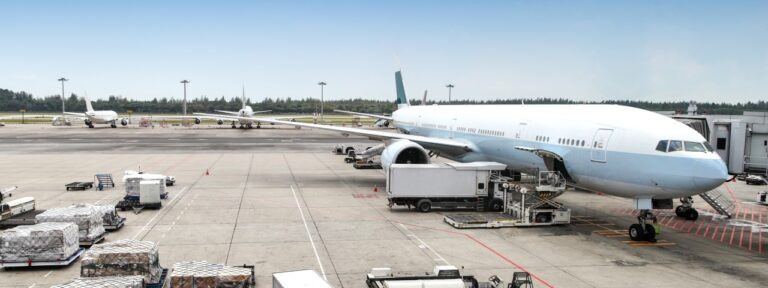Air Charter Service had its busiest year for emergency response humanitarian flights in several years, with several natural disasters and civil unrest requiring aid and evacuations.
READ: Red Sea crisis offers a glimpse into future global supply chains
Ben Dinsdale, ACS’s Director of Humanitarian and Government Services, commented: “There are humanitarian projects and development efforts that are constantly going on, but unfortunately, last year saw a higher number of occasions than usual where we have had to activate our specialist Humanitarian Task Forces around our global offices in response to an emergency.
“The first notable humanitarian operation that we arranged charters for last year was in February, following an earthquake measuring 7.8 on the Richter scale, which struck Turkey and was also strongly felt in Syria. By the following day, we had flown German and British search and rescue teams to the region and an ACS representative to ensure the smooth operation of the charters that followed. In all, we arranged charters for more than 2,000 tonnes of relief cargo to fly in on a wide variety of aircraft, including Boeing 737s, 747s, 757s and 777s, Airbus A300s and A330s, and Ilyushin 76s. The cargo included shelters, tents, blankets, food and drink supplies, and the field hospital.
“In April, following civil war breaking out in Sudan, our response teams in the US, Europe and the Middle East were all called into action to evacuate people from the country. Following these evacuations, we chartered aircraft over the next month to fly in a large amount of aid for those displaced by the troubles.
“Following the significant damage caused to Guam, the American territory in the Western Pacific, by Typhoon Mawar in June, our teams across our North American offices were asked to transport humanitarian cargo, including generators, water tanks, tractors and trucks. A few months later, wildfires spread across Hawaii in August. Again, our North American offices were bustling, flying in aid and three charters with mobile phone towers to Maui.
“In September, there were two significant events nearby in a matter of days – first the Moroccan earthquake and then the floods following Storm Daniel in Libya a few days later. Very few charter flights were needed for Morocco, so attention became focussed on Libya, where we flew in more than 500 tonnes of aid, including shelter equipment, such as tarps, tents, sleeping bags, and water purification tablets.
“This list by no means covers all of the emergency humanitarian charters that we did in 2023, but it gives an idea of the breadth of charters arranged across the globe. Whilst the majority of the work in my role is supporting longer-term relief and development projects, which is ongoing, I am proud that our skillsets can be put to good use in these emergencies and help out in such tragic circumstances.”




